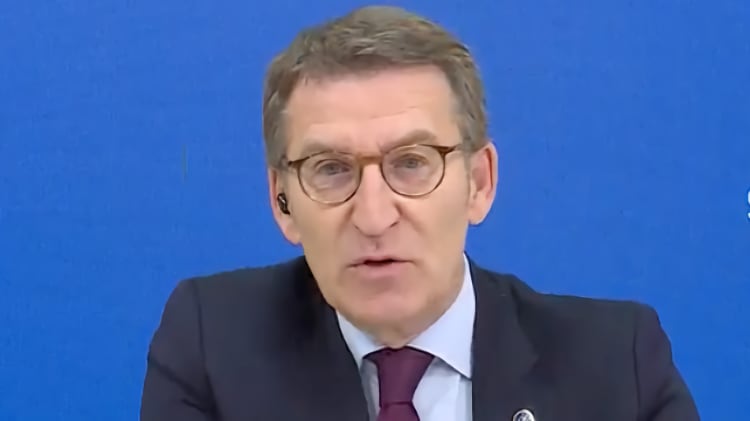Ángel Collado
Despite the internal fights in the social-communist cabinet and the bills of his pro-independence partners, Pedro Sánchez boasts of stability in power in the face of an opposition that needs time to articulate its alternative.
The president of the government is handing over the head of the head of the intelligence services to the Catalan separatists and burning the figure of the defence minister, Margarita Robles, but at the same time he benefits from the fact that the PP, as a state party, needs to emphasise this condition and seek institutional agreements.
Alberto Núñez Feijóo makes his debut as head of the opposition, more confident of slowly wearing down the Socialist Party than fearing an early election due to a lack of parliamentary support for the government. Sánchez’s generosity with the conglomerate of nationalist parties, even at the expense of institutions such as the National Intelligence Centre, as confirmed last week, is a guarantee of continuity for the legislature.
The new PP president, elected in April, has had time to leave the presidency of the Xunta de Galicia and undertake an orderly transition to leave the post to his vice-president, Alfonso Rueda, while taking the reins of the party’s national apparatus. And he still has the task of recomposing the parliamentary teams and appointing his spokespersons in Congress and the Senate. In both chambers, those chosen by Pablo Casado will continue: Concepción Gamarra and Javier Maroto.
Feijóo will now occupy a seat in the Upper House as an autonomously appointed senator for Galicia as a preliminary step to head the PP’s parliamentary groups. He will thus be able to measure himself against Pedro Sánchez when the latter sees fit to come to the Senate to submit to the control plenary sessions, once a month at best.
At the PP headquarters, they are preparing the reformulation of their government alternative with a calmness that clashes with Sánchez’s urgencies. From the outset, Feijóo has been in favour of agreeing on the pending renewal of the General Council of the Judiciary, but not just a mere distribution of quotas, as the government intends to do in order to control the governing body of judges from the majority that it forms with its communist and pro-independence partners.
The PP aspires to include in the agreement legislative reforms to guarantee greater independence of the CGPJ, a change that scares Sánchez, which the Popular Party is working on as if it were possible to negotiate. And if in the Moncloa Palace they demanded the pact for the first days of June, in the main opposition party they rule out that it could happen before the Andalusian regional elections called for the 19th of that month. And then come the talks to form the executive, another moment that will complicate any talks.
In order to articulate its alternative government, the PP insists that its obligation is to reaffirm itself as a state party against the current social-communist cabinet. The objective of Feijóo’s team is to offer pacts on matters of national interest, economic management or far-reaching reforms that make Sánchez so uncomfortable and, at the same time, to make a forceful opposition to the concessions to the separatists and the paralysis in economic management.
What happened last week in Congress with the passage of the national security law illustrates the complicated balance that the PP leadership intends to strike. The Executive cannot count on its usual allies to approve the bill and, from the outset, vetoes it in the House so that it cannot be debated.
The PP, which cannot join the pro-independence supporters’ manoeuvre, save Sánchez from certain parliamentary defeat and will now be able to present amendments to the text and supervise its final drafting. If Sánchez rejects this collaboration, which would greatly irritate the nationalists, Feijóo will always have the option of later overturning the bill with his votes.
The Popular Party believes that it has time to get a feel for the task of wearing down the government for its own benefit. The deterioration of the economic situation that overflows the commitment to spending and the deficit, the spectacle of a cabinet always at odds between its two sectors, the Sanchista and the Podemite, and the escalating demands of its separatist allies are factors that support the PP’s theory.
For the moment, these are the same circumstances in which Sánchez boasts of moving without major problems for his stability. Neither is the coalition breaking up, nor can the separatists do without their favours, they are only asking for more. The main change in perspective will be the one that will bring, already in summer, the end of free European credit, the rate hikes, the messages in favour of fiscal discipline and the threat of cuts.







